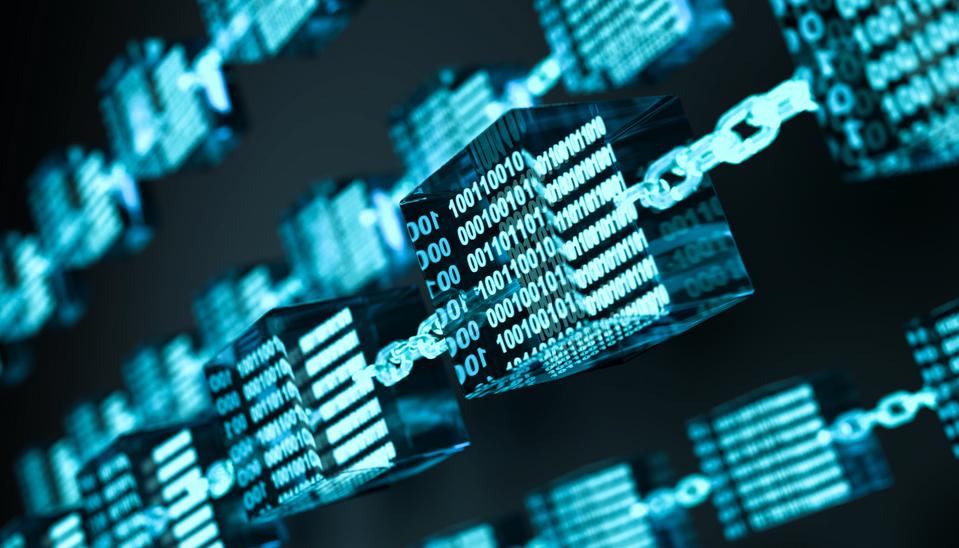 Are you afraid that your data might leak to the government or service providers? Do you wish that you and your employees could access confidential data from anywhere safely?
Are you afraid that your data might leak to the government or service providers? Do you wish that you and your employees could access confidential data from anywhere safely?
If yes, blockchain is here to solve your needs.
Sectors such as cyber security, healthcare, manufacturing and industries, financial services, government, retail, real estate, media, and tourism, etc., are already using blockchain today.
Want to know how? Want to get into the depth of it? Read on!
Bird’s Eye View:
Blockchain is a database that can be described as a decentralized way to document transactions in a particular sequence. Everyone in the network has access to the entire blockchain and its history.
When a transaction is recorded, the accounts of all the participants are updated with the information. Transactions are grouped in blocks, and it makes a chain, so it is named Block Chain – each of which is then linked to the one that came before it.
The transactions recorded in the sequence are impossible to tamper, alter or falsify by anyone.
How it works:
When two persons work on a transaction, the data goes to computer nodes of peer-to-peer networks and gets validated.
Once verified, it goes to the block, and the block is then hashed. Every block has a reference attached to it. The new block gets a permanent place in the blockchain with a guarantee of not getting tampered with and distributed to its participants.
Types of blockchain:
Blockchain can be used in various ways as there is not just one or not a single software program. It has no real value but is created only when used in conjunction with suitable applications.
A public blockchain like Bitcoin is open to anyone who participates, the only inconvenience being that a large number of participants verifying transactions takes up more time.
A private blockchain is controlled by one entity that grants permission to participate and prescribes rules and regulations to govern transactions. Here, work can be done speedily due to fewer participants.
For businesses, there is a consortium blockchain where a predetermined set of nodes are allowed to participate. This is a decentralized kind of blockchain where data remains with participants only.
Blockchain vs. Cryptocurrency:
First of all, it should be realized that blockchain and  Bitcoin are not the same. Bitcoin refers to virtual currency, or you may call it cryptocurrency, whereas blockchain is the tool that makes it a viable means of value exchange.
Bitcoin are not the same. Bitcoin refers to virtual currency, or you may call it cryptocurrency, whereas blockchain is the tool that makes it a viable means of value exchange.
When someone watches a video, the maker gets money directly. Thus, with no mediator platform and no brokerage to anyone, he gets the total amount and instantly connects with the viewers.
It is also used to vote online for shows on television or social media platform activities with complete records free from manipulation.
The factors that make blockchain unique:
- Trust is the only intermediary.
Blockchain is very trustworthy so that participants can use it to transfer assets directly. There is no intermediary like a bank or a broker. It also discloses the actual owner of the asset.
Every blockchain is protected with cryptography, and it is just impossible to manipulate transactions under it. They are authentic and immune from any forgery or fraud.
- Transparency:
The record of transactions in the blockchain is accessible to all the participants. As far as Bitcoin is concerned, every user has a unique address linked with personal data, such as a residential address for Bitcoin payment.
The future of blockchain seems to be highly optimistic, given that it has already found acceptance and application across a variety of industries and levels. With rising awareness among the common public, we may see far greater applications. At Rucha Yantra LLP, we aim to spread knowledge of such next-gen tech among our audience. Hope you liked this piece; we shall continue next time with blockchain’s role in the manufacturing industry so far.
Stay tuned to our Knowledge Corner



